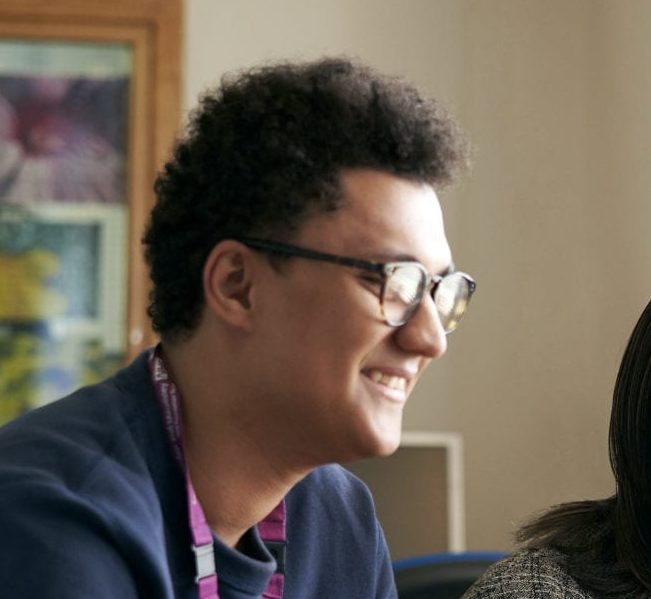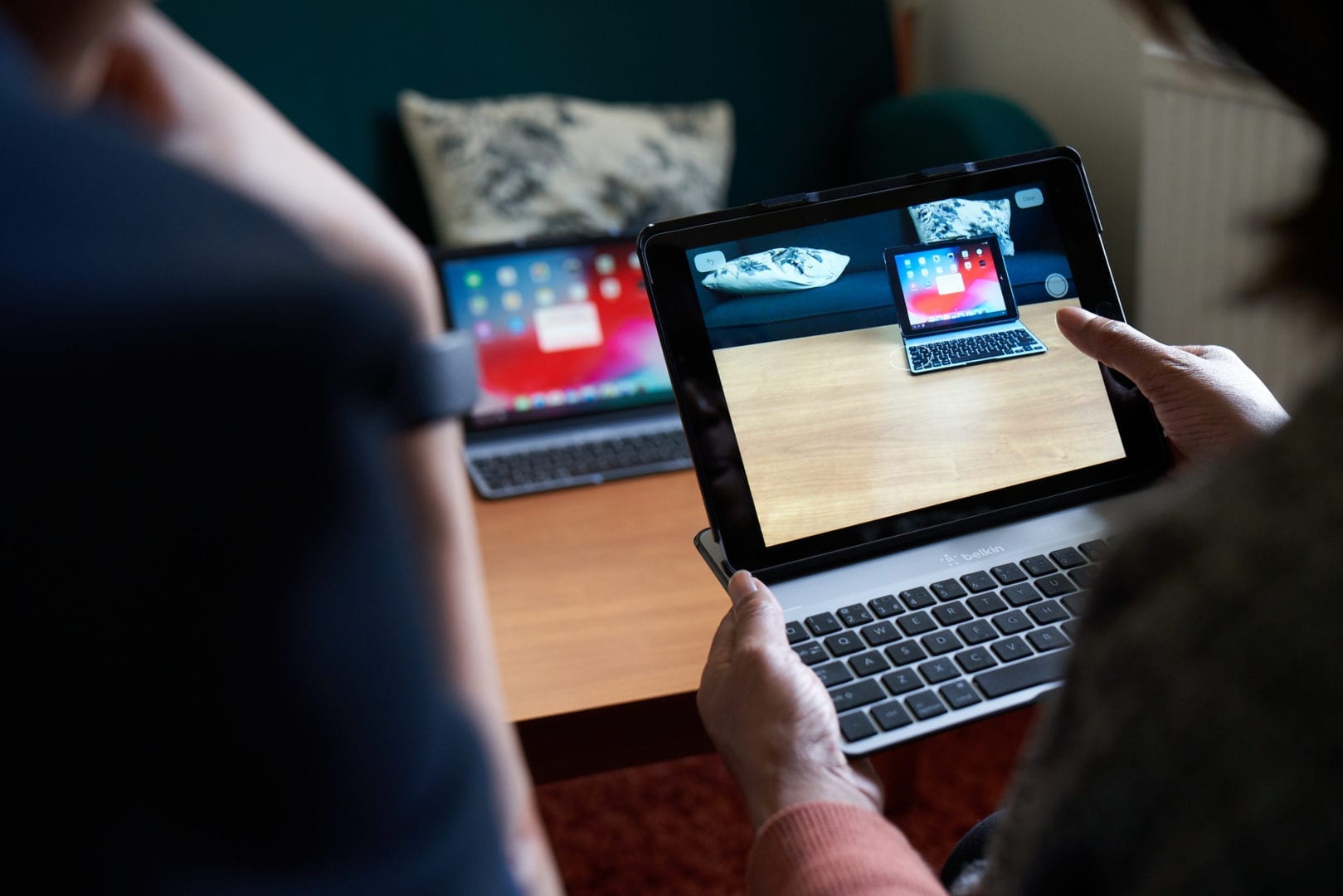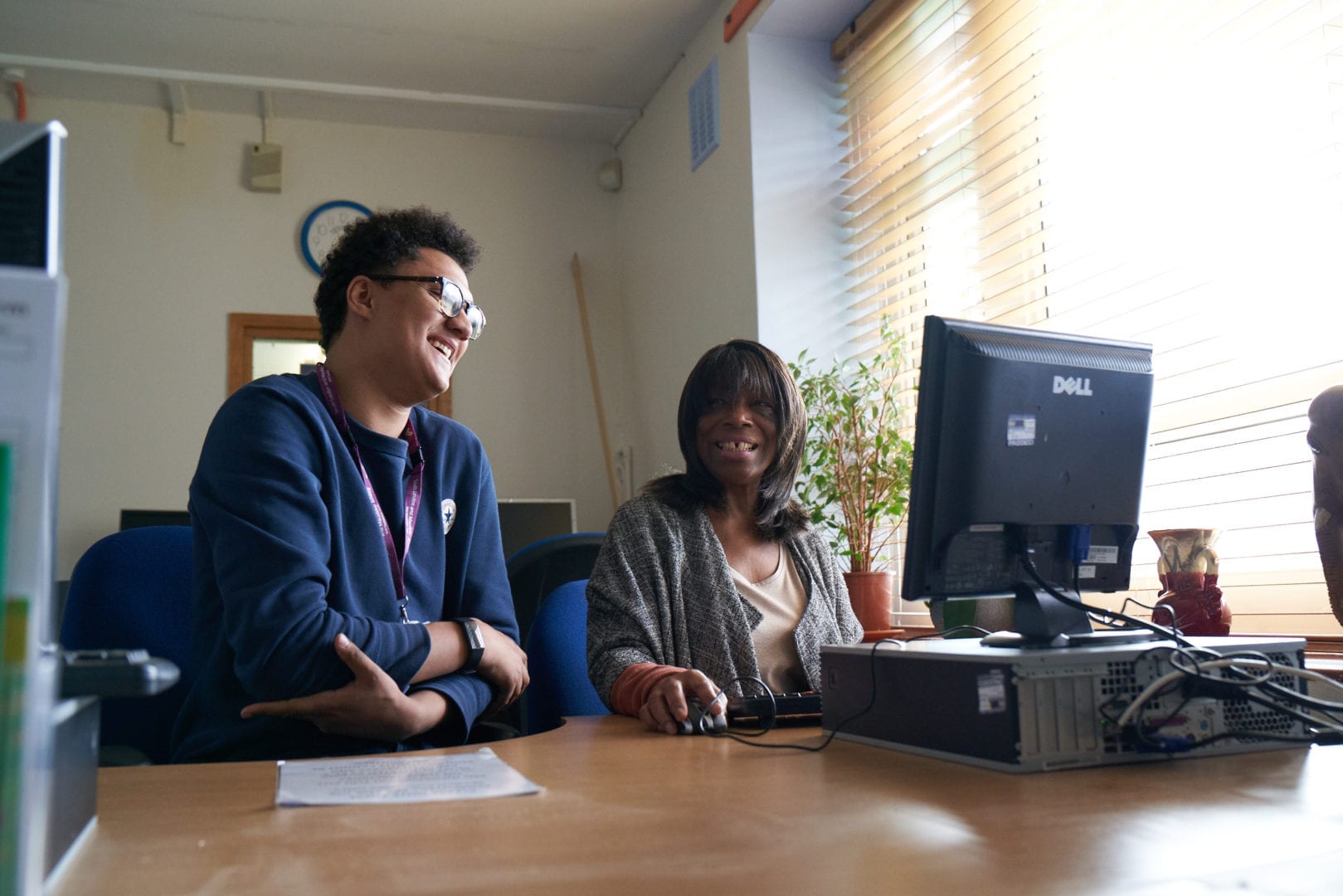Digi Inclusion is a Maudsley Charity funded community programme which aims to combat exclusion from digital resources and learning among mental health service users. It addresses the challenges, limitations, and lack of access to digital services faced by many Lambeth residents.
With an increasing amount of fundamental services such as housing, universal credit and banking moving online, it is vital to improve digital literacy. Over 5% of Lambeth residents do not regularly use the internet, which amounts to an estimated 12,000 people (ONS, 2019).

Digital Engagement Officer and Online Learner Fund
The funding has provided a dedicated member of staff, who delivers training and support, as well as an ‘online learner fund’ which gives out funding of up to £500 for a service user to do an online course of their choice.
Oliver Jones is the Digital Engagement Officer, and teaches an 8-week group workshop in basic IT skills, as well as giving one-to-one advice, and ad hoc support to anyone who drops in and wants to use the computer suite or has a query.
Oli said: “The great thing about the weekly two-hour workshop is that just a few sessions can have a huge impact on someone. You’re giving people the confidence to give it a go.”
I feel at ease at Digi-Inclusion – the support they give is much wider than just the digital skills training
Employment focus
One of the main aims of Digi-Inclusion is to help people back into employment, by supporting them to use the online learner fund to take vocational courses, find out how to search and apply for jobs, but also by building their wellbeing and self-esteem.
Mehari is one of the participants who has benefitted from the online learner fund, having completed an online accounting course. He said: “I feel like this course has given me a chance to compete in the labour market. Digi-Inclusion has improved my confidence, my opportunities and helped me apply my skills. I couldn’t have done it without the financial support.”

iPads
The Maudsley Charity have also funded five iPads, so that participants can learn how to use tablets. This complements a wide range of skills training they offer, from simple but essential tools like setting up an email address, or using a smart phone, to more personalised support like launching a website to showcase someone’s portfolio.
Ugo is a peer workshop tutor of the digital skills course and says: “Digi-Inclusion targets the needs of the individual, and focuses on what clients want to achieve, meaning they are more engaged in their learning.”
Vocation Matters
Digit Inclusion is part of Vocation Matters at Beale House, Stockwell, a user-led community organisation which serves the needs of local South London and Maudsley NHS Foundation Trust service-users. It is integrated within South London and Maudsley NHS Foundation Trust, and offers support in education, employment, training, volunteering and welfare.
Funding extension
In 2020 Maudsley Charity awarded the Digi Inclusion project additional funding, match funding was also provided by South London and Maudsley NHS Foundation Trust. The funding will enable the service to continue for a further 18 months.
Talking about the project Shaun Williams Vocational Information Project Manager reflects: “The last 18 months have worked well, we have been trialling, learning and refining as we go. The feedback we have is positive, and we can see the results first hand. A great example of this was helping to provide someone with basic IT skills who was able to move on and pass a finance exam.”
Digital Engagement Officer, Oliver Jones explains – “Our Initial funding was focussed at online training, but we’ve been able to expand this, people can be quite specific about the technical one on one support they need. COVID has made it harder for us to work with new people,” continues Oli “solving technical problems and introducing new concepts remotely is difficult, face to face contact can help us establish trust and we are adapting the service to support this.”
Shaun continues: “A major part of project is being person centered and it is a challenge with COVID, but I think we can mix and match our service delivery.”
Accessing Digi Inclusion
Shaun says: “Some people find us through other services at Beale House, where we are based. We work with clinical care coordinators based in Lambeth and we advertise through the Trust’s OT network, but we’re mindful of capacity – and the need to manage expectations. The key criteria is that we are a service for people based in Lambeth accessing secondary mental health services.”
The approach
The service offers a bespoke approach and recognises that people are looking to get different types of support. Oli says: “If people approach me I will be happy to meet up with them, quite a lot of people just want help with a particular technical issue and it’s a one off, but others are motivated and want to attend our weekly workshops. We try to encourage the people we meet to get involved more. We explain the workshops aren’t scary and we don’t want to put people under pressure. Once they have used the service they go often on to use more structured learning and qualifications.
What are the main IT issues people have?
Oli: “Access is an issue; people often need help with mobile data and getting online. Internet safety is another challenge, many people are quite worried about hackers, scams and the risk of viruses. Many people have smartphones now, but are not really aware of what they are capable of, we’ve developed guides and documents and adapted existing material to made it more accessible.
The future
The team are looking forward to seeing the service continue for a further two years. “We’re looking at linking up with the SLaM Recovery College and Blackfriars Settlement to look at different ways we can share learning and experiences, it’s an exciting opportunity. We are also working with SLaM IT colleagues to see how digi-inclusion can be promoted throughout the trust and also how best we can make this money work for the people that need it most.” Shaun says.
Support us to reach more people
Your donation will help us to fund more projects, and reach more people in our local communities. We work with our projects to ensure that lessons learned are shared across the NHS and beyond, to bring benefit to people across the UK and internationally.
Donate now
